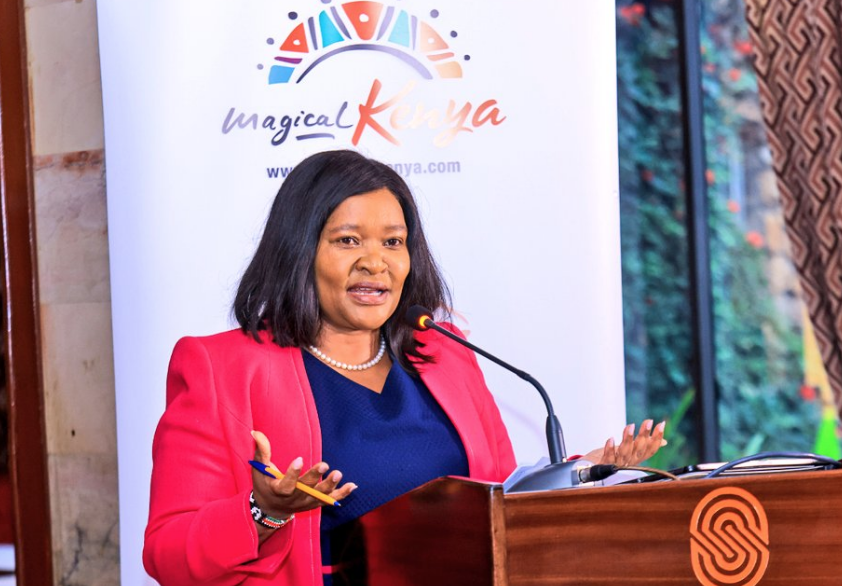
Ministry of Tourism and Wildlife and Kenya Association of Hotelkeepers and Caterers (KAHC) have committed to protect Kenya’s global reputation as a top destination.
The two pledged to forge a united front in addressing sector challenges and accelerating progress toward the national target of 5.5 million international visitors by 2027.
Addressing a consultative forum, Cabinet Secretary for Tourism and Wildlife,
Rebecca Miano emphasised the importance of continued collaboration across all tourism stakeholders to elevate Kenya’s global competitiveness as a preferred travel destination.
While acknowledging the concerns of the tourism sector over the potential impact of the recent disruptions, the Cabinet Secretary reaffirmed the government's commitment to ensuring peace and stability.
She extended an appeal for positive national storytelling, observing that stability is a prerequisite for tourism success.
“Let us remember that tourism thrives where peace prevails. An isolated incident can be amplified globally and threaten confidence in our destination. I call upon our youth and all Kenyans to safeguard our reputation as a welcoming, united nation,” Miano asserted.
KAHC chief executive officer Mike Macharia, expressed optimism about the sector’s continued recovery and commended the resilience demonstrated by both tourism businesses and Kenya’s dynamic workforce.
“I want to thank the government for its continued collaboration and support for the sector. It’s crucial that we build on the progress we’ve made,” said Macharia. “While there are specific challenges we still face as a sector, I am confident that through open dialogue and joint action, we can overcome them.”
He added that despite recent disruptions, Kenya’s hospitality sector has remained open, safe, and responsive to the needs of both domestic and international travellers.
The meeting provided a platform for dialogue on mitigating reputational risks while accelerating sector transformation.
The gathering issued a joint communiqué built on eleven key pillars including peace-building, youth participation, increased air access, strategic destination storytelling, affordable financing for tourism investments as well as demystification of tourism for domestic audiences.











